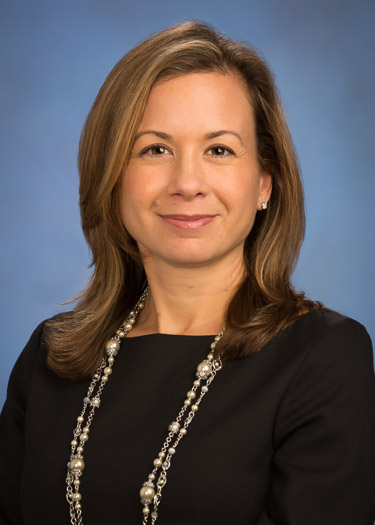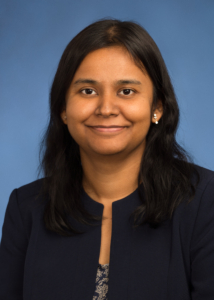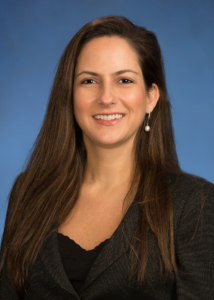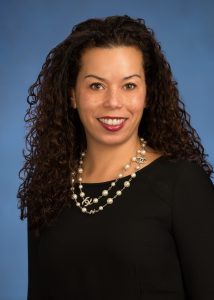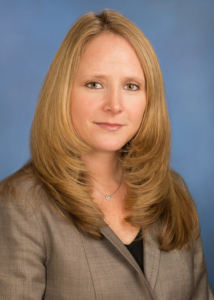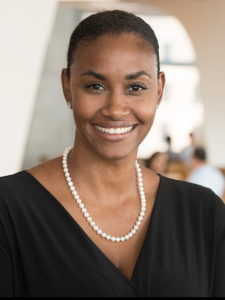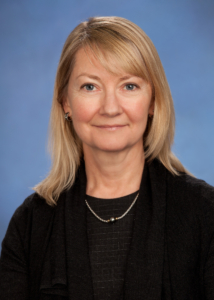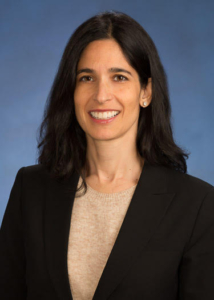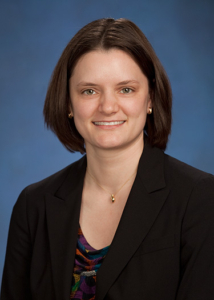 Kristi Tange’s second day at Goldman Sachs’ New York office happened to coincide with a dinner party to celebrate her father’s birthday.
Kristi Tange’s second day at Goldman Sachs’ New York office happened to coincide with a dinner party to celebrate her father’s birthday.
Initially, she was hesitant to ask to leave the office a little early, and then she realized that there was no harm in making the request.
When her boss said yes, Tange described it as a “profound moment.” Not only did it give her insight into the firm’s positive culture, but it helped her realize that it’s always wise to communicate and ask for what you need. This experience also helped inform her management style: “When someone asks for something, my first answer is always, ‘Of course; let’s see how we can make it work.’”
A Varied Career Across Three Regions
Tange recently celebrated her 21st anniversary at Goldman Sachs after beginning her career as an analyst in Japan, where she had studied to fulfill the foreign language proficiency required as part of her master’s degree program in Foreign Service at Georgetown University.
She then moved with Goldman Sachs to New York, where her husband was attending graduate school. Tange is now based in London and serves as co-head for Enterprise Operations, providing operational support for processes that service the breadth of the firm, including opening accounts for clients, managing collateral, and more.
When she first joined Operations, her division was much smaller, and there was just one managing director, which made her question if ultimately reaching that level was possible. Fast forward two decades, and the division has expanded significantly. She was named a managing director in 2009, which she describes as a “pleasant shock,” noting that when she was an analyst, reaching that level had seemed unattainable. “You learn over the course of your career that you can outperform your own expectations,” Tange says.
One of the most exciting programs she is currently overseeing is uplifting the firm’s onboarding program, known as “Know Your Customer,” in order to comply with new due diligence regulatory processes and enhance the client experience. While fulfilling these requirements has traditionally been challenging for clients, her team realized that revamping this program could be a differentiator for the firm, and began to rethink the architecture and streamline associated processes in order to more effectively introduce clients to Goldman Sachs. “To be in a role where we can deliver an effective solution that sets a positive tone for our client relationships is rewarding,” she says.
Using Your Voice to Earn Your Spot
Over the course of her career, Tange has learned that it’s important to speak out and be bold, to earn a voice and seat at the table — and that you will go farther and faster if you do that early in your career.
“When people join, they think they need to be trained for a long period of time before sharing their views, but bringing a fresh pair of eyes is where your value is — to point out things that others might not notice,” she says, adding that those who are hired by Goldman Sachs tend to already have the necessary education and talent to be contributors from the start. “The earlier you share your perspective, the more you will grow as a leader.”
She encourages women to adopt behaviors that have served male colleagues well, such as feeling empowered to boldly request a one-on-one meeting with a senior leader.
“We read about barriers that women face in their careers, but I’ve felt fortunate at Goldman Sachs because it’s a place focused on skill sets and meritocracy,” Tange notes. She believes it’s important that companies focus on retaining women through policies such as short-term leaves, flexibility and relocation opportunities in order to keep top talent.
Tange also notes that it’s important to have leaders who have been able to achieve a balanced lifestyle, to serve as a model for others. “We need role models who fit a number of profiles, who represent greater diversity, so that junior individuals can see more women at senior levels,” she says.
During her time at Goldman Sachs, Tange has seen the value of sponsorship. In her current role she and fellow women managing directors identify and support up-and-coming women in their division, in an effort to ensure they have effective sponsorship and work on initiatives that help develop and showcase their capabilities ‘to get to the next level.” Tange notes: “We are able to pay it forward as we help move these women up the career ladder.”
Tange actively works to achieve a balance between work, her family and addressing her own needs. After her son was born 10 years ago, she realized that her life had become revolved around work and her family, and she needed to carve out time to focus on her health by joining the gym. Tange notes that her husband was very supportive about her motivation to focus on her health, and she put the structure in place to carefully “protect” her gym nights. “This helps show others that I am balancing my health and personal needs alongside my job, which helps give the right message to my team that we should all do this.”
Since spending the past eight years in the UK, she has become very passionate about travel and has visited many European countries with her family. She also enjoys sightseeing in London, with memberships to horticultural societies and museums.

